|
7/21/2024 0 Comments The Second Ride of Winona RyderWho didn't have a crush on Winona Ryder in the 1990s? And who wasn't troubled by her troubles in the following decade? She's the title focus of the final section of my story triptych, "Parentheticals I," which first appeared in Another Chicago Magazine, and which I link to here. I'm happy to see the second ride of Winona Ryder.
0 Comments
The exploitation and abuse of domestic helpers is an old story and by no means limited to any one location. The story in today's Guardian concerns one of the UK's wealthiest families, the Hindujas, and their hideous treatment of domestic helpers. The photograph above is of Abby Luna, a Filipina maid rescued in Bahrain after a posting she made to Facebook accusing her employer's son of rape and assault. When servility is inscribed into the very language one speaks, where does one turn for justice? This is what my story "Sir," recently published in Pratik: A Magazine of Contemporary Writing, asks. Since it's not available online, I offer it here in this post. Many thanks to Guest Editor, Piia Mustamaki, and to Executive Editor, Yuyutsu Sharma. Sir, by Tim Tomlinson
When I was a girl of fifteen, I was sent to Hong Kong to work for Sir. Sir was a young man, very handsome in the American way, with a square jaw and small narrow nose and blue eyes and yellow hair. He wore white shirts with French cuffs. His ties were solid red or blue or purple. Ate explained how important Sir was at his bank, and how particular at home. She trained me in his ways for two days—the way he liked his sheets and towels, the way he liked the magazines arranged on the glass table, the way he liked the windows cleaned with Windex and a cloth, not vinegar and the newspaper. There were many things to remember, Ate explained. Sir had many ways. “Work hard,” she said, “and he will be nice to you. But be careful,” she giggled, patting her tummy, “or your clothes will get tight.” Then she flew home to the province to have Sir’s baby. Sir was particular about his toast, Ate warned me. It had to be dark brown, not light, and never burnt. Sir owned a KitchenAid toaster that held four slices between wire grills. Ate showed me how its settings went from Light, which was 1, to Dark, which was 7, with numbers 2 through 6 between. If you set it at 5, she said, Sir thought the toast came out too light. Set it at 6, and Sir thought it was burnt. Turning it to Dark/7, Ate showed me how the red hot coils could burn anything. She dangled a piece of string six centimeters above the coils. It caught fire in seconds and the orange flame raced up the string almost faster than Ate could open her fingers and drop it. It was important, she explained, to set the toaster at 3, and to put the toast down two times. I said, “Doesn’t two times three equal six?” Ate said, “No, because six equals Sir’s fury. Two times three equals the way to keep Sir calm.” Or, she explained, at least he didn’t complain. He didn’t throw his plate at the wall, as he'd done when Ate overcooked the noodles, or once when she served the broccoli cold. Sir is a gentleman, Ate told me, but he is very particular about his toast. Together, while Sir was at work, we practiced with the toaster. Two slices, setting three, down twice. We giggled. We smeared the toast lightly with expensive jellies from Fortnum and Mason’s. By late afternoon, Ate was gone. I have never forgotten Ate. She was so kind to take that time to train me. And Sir was so kind to give her the plane ticket to fly home. The next morning, I prepared Sir’s breakfast—two eggs sunny side up, two slices of dark brown toast, coffee filtered through a Mr. Coffee machine, and a glass of orange juice. I pushed through the swinging door with the breakfast tray and set Sir’s place at the table. His place had a view of the entire harbor—the apartment was almost all glass. But Sir studied a television that showed news with a steady stream of numbers running along the side and the bottom of the screen. A tripod set with a telescope stood next to Sir’s seat. I wondered how far away he could see. Past Kowloon? Into Shenzhen? Maybe all the way to Ormoc, in the Philippines, where I’m from, but when I looked through the telescope everything was all fuzzy. “Get back to work,” Sir said. I said, “Sorry, po,” and backed out the swinging door, bowing. On Sunday, I went to Statue Square where the Filipina maids gather. Ate told me where to look for other maids from Ormoc. I met so many. It was good to hear Waray. It was good to eat binagol. We did each other’s hair and nails and I talked to so many titas and ates. I told them about Sir, about his ways, about his toast. The Americans are all like that, Tita said. The Chinese are even worse, Ate told me, and we giggled. They told me to keep my door locked at night, and they were not happy to hear that my room didn’t even have a door. That’s how things went. I worked for Sir six days a week, I saw my titas and ates in Statue Square on Sunday. They taught me about rules, they told me about short cuts. Always obey, they said, never argue. Then figure out ways to do what needs to be done, but with short cuts. They just like to make rules, Tita told me. But do a short cut. They never know. I brought home food from Statue Square, which I hid in Sir’s refrigerator. When he was at work, I nibbled on suman moron or pastillas. I watched The Filipino Channel on Sir’s TV. I learned to see through his telescope. Across the harbor inside the hotels of Kowloon, I could see girls who looked like me, girls I would see on Sunday in Statue Square. They were looking out windows, too. They didn’t have telescopes, but I had the feeling that they could see me. I liked to let them see me. I liked to think of them wondering, who is that lucky girl in the glass apartment? Why does she get to live there with the American? Why does she get to live her dream? One morning I set Sir’s breakfast tray at his place. I was surprised he wasn’t sitting there watching his numbers on the TV. Then I was surprised to see him inside the kitchen. “Good morning, Sir,” I said, and I did the little curtsey Ate taught me. Sir stood alongside the toaster. He wore a white shirt with a pair of gold onyx cufflinks, a purple tie pinned to his shirt with a gold bar, and shiny wingtip shoes. Sir said, “How do I like my toast cooked?” I looked at the toaster. To save time cooking Sir’s toast, I’d used a short cut. I said, “Sir?” He said, “How. Do I. Like. My toast. Cooked?” “I’m sorry, po,” I said, looking at Sir’s wingtips. “It won’t happen again.” “No, no, no,” he said, “Answer the question. How do I like my toast cooked?” “On three, po, two times.” “Good,” Sir said, “on three. But you’ve set this on six, haven’t you?” “Yes, po,” I said. “Yes, po,” he repeated. “Of course.” He turned the dial to Dark/7 and pressed down the empty slots. He said, “Come here. I want to show you something.” I said, “Po?” He pointed to the spot on the floor just past the tips of his shoes. “Come here!” I took a step forward. Barely an inch separated us. He yanked me by the arm. Before I could fall, he grabbed my neck and pressed my face directly against the toaster, my right eye not even a centimeter off the red hot coils. “Three, do you hear me? Three.” “Sir,” I whimpered, “I’m burning.” “Do you hear me?” he shouted. I heard him, but mostly I heard my screams. I smelled the burning of my hair, my own flesh. Even my tongue was burning. From that day, part of my lips won’t close, and part of my tongue can’t taste. I’m embarrassed to be in pictures. My right cheek looks a Barbie doll that melted. When I must speak with someone, I show them my left side. And I never forget. How could I—every time I pass a mirror … That was five years ago. Sir sent me home when the burns healed, although the scars remain to this day: two stripes that resemble melted wax. I have never married. No one has ever asked me. In Tacloban, I worked at a Jollibee’s in Robinson’s Mall. The boys made fun of my face. So did some of the girls, until I cried. They tried to apologize, but I quit anyway. Sometimes we think the Americans are mean, and they are. But we are mean, too. Even the nuns are mean. I found work in Manila. Luckily, the bathroom in the maids’ quarters had no mirror. Or seat on the toilet, or aircon in the dirty kitchen. But it was better than working in the mall where people stared at my face every time they placed an order. And it was better than working for Sir. I worked for an old couple who had very few needs. I was one of three helpers. They kept three on staff because sometimes one or more of their children visited from abroad. My job was to rub mint oil into Ma’am’s feet in the morning, and to massage coconut oil into Sir’s scalp in the afternoon. Ma’am squirmed and complained, but then she told me to watch TV, or nap. Sir fell asleep, then told me to do laundry, or help Aling Perla with merienda. Aling Perla is the kusinera. She doesn’t need my help. Don’t worry about Sir, she tells me, worry about Ma’am. She’s the one in charge. Most days Sir stays in his den where he falls asleep in his chair with the TV on loud. Ma’am stays in the bedroom. She calls us on the house phone to come in and turn off the sound on Sir’s TV. When I turn off the sound, Sir wakes up. Who told you to do that? he asks. Ma’am, Sir, I tell him. Well put it back on, he says. Yes, po. I put a scarf over my head and tie it under my chin, then I walk to the mall. When I near the gate, I pass by the home—a home—of Imee Marcos. At first it was hard to believe that I stayed in a barangay near where Imee Marcos stayed, even if she only stayed sometimes. She stayed only sometimes because she stayed many other places. Some people say Imee Marcos is what is wrong with my country. They say she tortured people, and that she stole the people’s money to go to American college where she never graduated but says she did. I can always tell when she is staying. Black SUVs park on the sidewalk, alongside at least two policemen with motorcycles. Sometimes the policemen are right there. They sit on their motorcycles and smoke cigarettes. They pull their shirts up over their bellies. I cross to the other side of the street and pretend I don’t hear what they say to me. What would they say, I’d like to know, if I pulled off my scarf and showed my face? At the gate, the security guard checks my bag. He needs to know that I’m not stealing something from Ma’am/Sir. One hand riffles through the bag, the other holds a shotgun. When I enter the mall, the security guard checks my bag to make sure that I don’t bring anything dangerous inside. He, too, carries a shotgun. A large police dog sits alongside the guard. The security guard at Starbuck’s carries a shotgun. The security guard at BPO bank carries a shotgun. I never understand who all these shotguns are for. Only the rich people, or the famous people, shop here. I have seen Piolo Pascual. He sat at the Coffee Bean by the cinema where he let people take selfies. I saw Kris Aquino, who is my favorite. She is very nice, but she did not let people take selfies. Sometimes I sit at the fountain near the girls from the salon. They wear white uniforms and gossip. They say one morning Imelda Marcos herself came to the mall. Imelda Marcos allowed selfies, but only for large groups. Her helper handed ₱100 notes to the people. The rest of the people work for the rich or the famous, like me. I take Sir to the movies on Thursday afternoon, when he gets in for free. I wait for him near the Coffee Bean and hope I’ll see Piolo. When Piolo or Kris Aquino or Imelda Marcos leave the mall, the guard with the shotgun does not check their bags. But he checks when I leave. He needs to make sure I haven’t taken anything I haven’t paid for. And at the barangay entrance, the security guard checks my ID first to make sure that I actually have a right to enter. He does this every time I return to the barangay. I thought maybe he doesn’t recognize me because of the scarf, but he does it to everyone. Sometimes he needs to make extra certain I belong. He picks up the phone to call the house. I say, Please, po. Ma’am/Sir are having their siesta. I explain how much Ma’am/Sir hate to have their siesta disturbed. He says, either I call or you wait. When he calls, I hope Aling Perla or the driver, Mang Roy, pick up the phone. Sometimes at siesta Mang Roy sits by the kitchen phone watching basketball or boxing on TV. I wait for someone to answer. The guard asks his question, they say my name, he checks my ID, he hands me my card. Then I open my bag. I say, Thank you, po. Then I pass by the snickering policemen outside the gate of Imee Marcos. They stop me. Do you have anything in that bag, one says. No, Sir. The other says, Are you sure. I say, Yes, Sir. The first one says, Yes you’re sure you have nothing, or yes, you do? Yes, Sir. These policemen don’t carry their shotguns. They keep them in holsters alongside the front wheels of their motorcycles. They wear pistols in holsters on their belts. They look at my ID. One says, Take off that scarf, I need to see your face. And I think, what would I do in this situation if someone like Sir had not disfigured my face? Would I simply comply because they are policemen? Or would I remember they work for Imee Marcos, who tortured someone, and went to college in America on the people’s money, and that I am one of the people? I remember once, a long time ago, Ate told me about People Power. She said, we are the people, and the people had the power. And I remember how hard that was to imagine, even then. 6/11/2024 0 Comments Robert De Niro in Flash BoulevardIn the annals of while you were away: "Robert De Niro," a new story appears in Flash Boulevard. Many thanks to the editor, the renowned flash doyenne, Francine Witte. Click the link, or the photo, then duck.
"Tomorrow Never Knows" in the Teesta Review, Vol 7 No 1, edited by celebrated author/poet Bob D'Costa. The theme is: The Void, an idea I was introduced to by John Lennon's track, "Tomorrow Never Knows" (Revolver --1966), and have explored, wittingly or un-, ever since. My story borrows the title and takes it underwater. Many thanks, Bob D'Costa, for the great issue, and for including my homage.
is rising to the surface. Here's a first look at the cover. It will become a material object in the next couple of weeks, and we'll launch it at the New York Writers Workshop in Kathmandu / Himalayan Literature Festival on May 27-28. Here's one of its poems:
Eight Ideas on a Night Dive Some impurities can make water clearer. —Dean Young That black has depth you can’t see but feel That black is the opium of the imagination That forms come out of nothingness and return to nothingness before becoming something That I am a form That ideas are not forms but arise from them That fish are forms That fish are narratives We must listen closely to the stories fish tell, are telling 3/14/2024 2 Comments "The Anemones" in Drunken Boat #25The renowned and venerable Drunken Boat wobbles again with issue #25, and I'm so honored to be included on its screens, alongside such luminaries as Vinita Agrawal, Sudeep Sen, Arundhati Subramaniam, and so many others. Many thanks to founder and editor Ravi Shankar, and to the new (and improved!) DB team. "The Anemones" is a creative nonfiction excerpted from Listening to Fish: meditations from the wet world (Nirala Publishing), the book I'll launch this May at the New York Writers Workshop in Kathmandu / Himalayan Literature Festival. (Photo: Purple-tipped anemone and pale clownfish, from a dive I took off Ligpo Island, Philippines.)
2/19/2024 0 Comments ॐ मणि पद्मे हूँA delightful meeting with Nepalese Consul General, Hon. Bishnu Prasad Gautam, with NYWW colleague Ravi Shankar as we continue planning for what promises to be an amazing fortnight in Kathmandu, the New York Writers Workshop in Kathmandu/Himalayan Literature Festival, May 22 - June 2, 2024. Check the website for details, register now for the Early Bird discount (through March 15). Stellar guests, regional and international, numerous panels, readings, and workshops, two of which will take place in temples. ॐ मणि पद्मे हूँ!
2/18/2024 1 Comment Plus ça change vs NYCThe old French expression, plus ça change, plus lâ meme chose (the more things change, the more they stay the same) is often true. But it's just as true, and maybe more often, that the more things change, the more they never come back. Above is an image from Paul Mazursky's beautiful 1976 film, Next Stop, Greenwich Village. The actors Antonio Fargas (l) and Christopher Walken (r) hustle their friend, Dory Brenner, across 7th Avenue at Sheridan Square. Behind them, the iconic Village Cigars. The film story takes place in the 1950s. I saw it when it opened, and its images of Village Cigars--my first--became part of my mental map of NYC. How exciting it was, in 1977, to emerge from the Broadway 1 at Christopher Street and stand under the Village Cigars thoroughly old school, Hopperesque awning. It was as if I’d wandered onto the film set of my imagination. The shop opened in 1922, it closed five score and two years later, and it won't be coming back. I'm not a smoker, so it's not the tobacco (or the vapes or the bongs) that I'll miss. I'll miss my New York, which was the New York of e.e. cummings and Marcel Duchamp and Patti Smith and Thelonious Monk--and you, until, that is, Feb 7, 2024. In 1980, if I stood on the sidewalk outside Village Cigars and sailed a paper plane over its roof, it would have landed on the steps of the home a former girlfriend grew up in, a home replete with a monkey, a parrot, alcoholic parents, and a cat named Sphincter. I spent many formative years there soaking up the kind of New York I'd dreamed of as a young suburban delinquent. (For the record, I don't miss the old girlfriend. Very much.) These days, walking through New York City, I think of the old haiku of Bashō, which says something like even in Kyoto … I long for Kyoto. But I've come to understand that missing New York City while in New York City is very New York City, which is here and gone at the same time.
2/11/2024 1 Comment "Two to Choose"In Celine Song’s Past Lives, you fall in love with the actress, google her, and feel hurt when you learn she has a husband. Greta Lee does that to you. It’s hard to know exactly how. At two moments in the film, she gives the men attracted to her the very clear cue to act. One does, the other doesn’t. It comes down to: sometimes you have to kiss the girl. Before you make a choice, you have a thousand possibilities. When you make a choice, you lose 999 things. The rest of life is, you learn how to live with all those losses weighed against the one gain. In “Two to Choose” Charlie Feathers says, “I’ve got two to choose from today / One I’ll keep, one I’ll throw away / If I’m wrong somehow I’ll pay / There will be three instead of one heart I’ll break.” Past Lives presents us with one who chooses, three who lose. (“Two to Choose” is not used in the film. John Cale’s “You Know More Than I Know” is, and it’s sublime.)
This is a pleasant surprise. Pank had "Excuse Me" for a couple of years, accepted it, then had it a couple more -- things had gotten a little fractured over there. I'd forgotten all about it until someone mentioned it in a note, and here it is. I've never seen as many typos as there are in this piece. I guess things remain fractured. I'll post a clean version here soon, but nice to see it up, and the patient reader (which isn't me) can plow past the glitches easily enough.
Honored to have a new story -- "Frank Sinatra on the 4th of July" -- in the venerable Men Matters Online Journal, edited by two of literature's finest, Malachi Edwin Vethamani and Danton Remoto. Thank you, gentlemen. And honored to be included in Issue #7 along with the brilliant poets Anita Dev Pillai, Jhilam Chattaraj, and so many others. To quote Sinatra, ring-a-ding-ding!
10/26/2023 2 Comments "Lost," a new story in Live EncountersHonored to have my story, "Lost," included in this anniversary issue of Live Encounters, and to share screens with such vaunted eminences as Indran Amirthanayagam and Thaddeus Rutkowski. A deep namaste to editor/publisher Mark Ulyseas, who continues to produce these exquisite volumes. And special shout out to issue editor, the poet Carolyne Wright, whose essay about studying with Elizabeth Bishop will have you all swimming for Brazil (behind me). As for the content: alas, young men love, and lose, then seek--as Phil Ochs teaches--the pleasures of the harbor.
7/10/2023 0 Comments A great NYC bookAlexander Stille’s The Sullivanians is a compulsive read. For several years, I intersected (peripherally) with the Sullivanians, always wondering but never quite knowing who they were and what they were about. Their base of operations extended from Columbia University down to the Lower East Side, with primary activities on the Upper West Side. They began as what might be called a noble experiment, a necessary, pioneering challenge to 1950s socio-sexual norms; they became, inarguably, a cult that was undone “by the thing [they] had set out to destroy: the family.” I highlighted many passages; here are a few that give a sense of the tensions around which Stille structures the book:
There is some redemption; there’s more heartbreak. The impact lingers. I want to thank C.D. Johnson, editor, and the excellent team at Rogue Scholars Press, for the long hard work of putting together this excellent anthology. The poems are two ways of remembering New Orleans. "Afternoon Rain" grew out of a translation workshop I took with the remarkable Sholeh Wolpe; it springs from a passage by Forugh Farrokhzad, the "Rebel Poet of Iran." I'm honored to be included alongside friends and luminaries such as Patricia Carragon, Wayne Kral, Thaddeus Rutkowski, Sarah Sarai, and so many others.
5/24/2023 0 Comments "Nes. Yo."In the blizzard of obits, testimonials, and encomia following the terribly premature passing of Martin Amis, a lot of very good writing has pointed to a lot of other very good writing. I’ve been wasting away the better part of a day enjoying some of the connections. In the online publication UnHerd (thank you, Robert Anasi), Terry Eagleton takes Amis (& Co.) down a peg for failing to develop anything resembling a viable alternative to the political perspectives he parodied, critiqued, or denounced (The liberal complacency of Martin Amis). In that piece, Eagleton references a hilariously mordant takedown of the JFK legacy by Amis’s dear friend and partner in slime Christopher Hitchens (If JFK had lived much longer – available in The Free Library). The occasion of the Hitchens piece is the publication of historian Robert Dallek's bio, An Unfinished Life. The tone is pitch perfect:
A widely shared opinion on Amis is the excellence of his nonfiction, the memoir, essays, and reviews. This sends me back to his collection, The War Against Cliché, wherein we find abundant evidence of the old Saul Bellow observation that writers are readers moved to emulation. Amis analyzes dispassionately, but admiration, even envy, percolates subtextually. We learn, for instance, from Amis’s brief survey of the William S. Burroughs catalogue, that halfway through The Wild Boys, “there’s forty solid pages of rectal mucus …” Rectal mucus. Can you imagine the paroxysms of shoulder-shaking Beavis-and-Butthead snickers that phrase produced in Amis? And we learn in the title essay that the new (1986) edition of Joyce’s Ulysses corrects this seemingly minor error in the Circe section:
which reverts to the author’s original intention, the sublime
“Nes. Yo.” is my favorite line of the day. Discussing the release of his first-ever album in The Guardian today, filmmaker Jim Jarmusch says, “Lately, I have an aversion to blues-based rock’n’roll guitar solos.” Jarmusch would have had a hard time at last night’s appearance of Lucinda Williams at City Winery, where a pair of gunslingers, one from Alaska, the other from Ventura, CA, shredded the necks of a half-dozen Guild and Fender guitars. It was a complicated, exciting, nostalgic, but perhaps irrelevant evening, during which I kept thinking, there’s a part of America that doesn’t exist anymore, or at least doesn’t matter, and it’s called America—that vast expanse between the east and west coasts, and especially the region south of DC—and that’s where Lucinda Williams and her band come from. Lake Charles and Baton Rouge, Nagodoches and Nashville, all these towns and cities Williams name-checks and criss-crosses in her songs, they’re all in some gravel road dream of the past that her songs evoke with fondness but expose as nightmare. So many meaningless deaths at the ends of meaningless lives. So much promise cut short by pills and pathologies. The men, especially the Scorpios, assholes, put on pedestals by the women who worship them.
I saw Williams at the Palladium in 1988. The self-titled lp that restored her career had just come out. She opened for Pylon (who seemed hopelessly, joylessly self-important) with two accompanists: fiddle and guitar. Saying nothing, she stared at the ceiling for forty anxious minutes and vanished. Last night, still clearly in recovery from a stroke, she stayed on for one hour and forty-five minutes. And she spoke. A lot. The band standing around looking at the stage floor. Nervously, I thought of the onstage ungluing of Barbara Jean in Robert Altman’s Nashville. But this was healthy banter, comfortable conversation, warm and almost fuzzy. She talked about some of the men in her life, especially the Scorpios, the ones she used to call beautiful losers but who’ve been upgraded to beautiful misfits ("Hard to lose, but harder to live with," was how she put it). She talked about her father. She talked about the stroke. She talked about where songs come from. Lucinda Williams is 70. Her audience is her age. A lot of big bellies, wide hips. A lot of men in baseball caps, several in cowboy hats. Gray hair, dyed hair, no hair, white hair. Her guitar player has white hair. She has white hair. And they all come from America, where they celebrate getting left behind together. A couple of other things: from as far back as I can remember, Jim Jarmusch had white hair. I still love blues-based guitar solos. I prefer sturdy, enduring songs. The Velvet Underground’s “Pale Blue Eyes” is one, and that was Williams’s first encore. Honored to have a new story up on the screens of Live Encounters. Many thanks, Mark Ulyseas!
A lovely way to close out the year: "Swim Lesson" in the esteemed Men Matters Online Journal (Issue #5, Dec 2022). Many thanks to editors Malachi Edwin Vethamani and Danton Remoto. And congratulations to fellow contributors.
Honored to have new work appear in the esteemed Beltway Poetry Quarterly. Many thanks to editors Indran Amirthanayagam and Sara Cahill and the BPQ team. "The Wall Meditations #3, 4, & 5" are part of a recurring sequence in Listening to Fish: meditations from the wet world (soon to be a collection). Earlier "Wall Meditations" appear in Lighthouse Weekly, and Live Encounters. To help save our friends the fish, and their homes, the coral reefs, you can do no better than to donate to the REEF Foundation.
11/11/2022 1 Comment Death, Sex, & Transition on the Coral Reef: new material in Live Encounters, Dec 2022Honored to have new work appear in Live Encounters, Dec 2022. Many thanks, Mark Ulyseas, for including me in another killer issue. "Death, Sex, & Transition on the Coral Reef" is an excerpt from Listening to Fish: meditations from the wet world, a current project-in-progress involving processes of and perils facing the world's reefs as experienced through the lens of a diver, i.e. me.
|
|



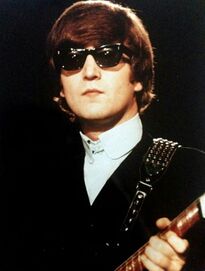
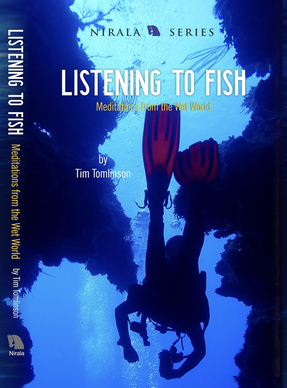

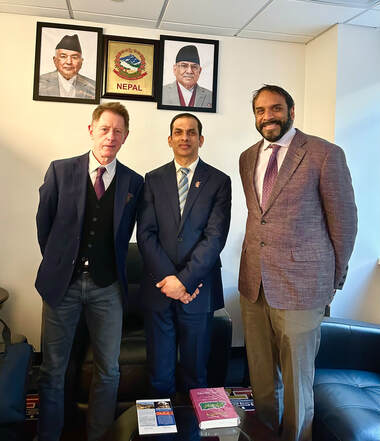
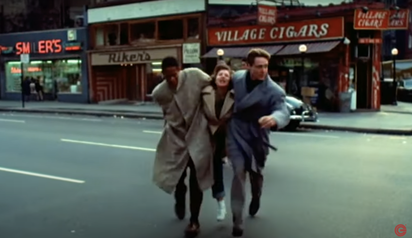
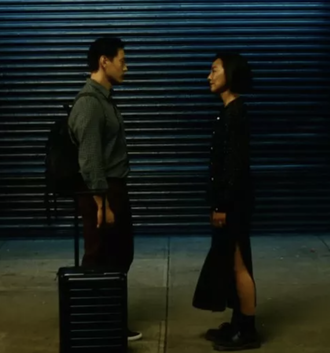
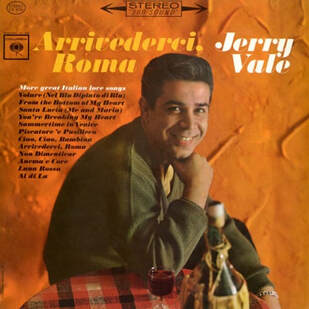
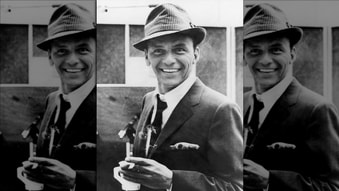
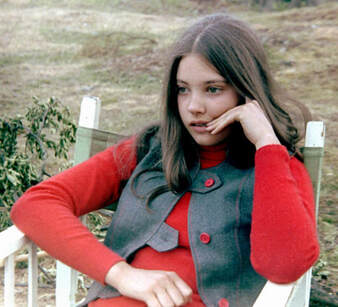
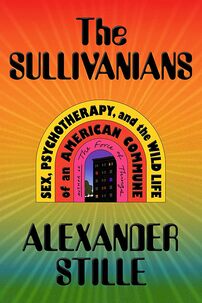
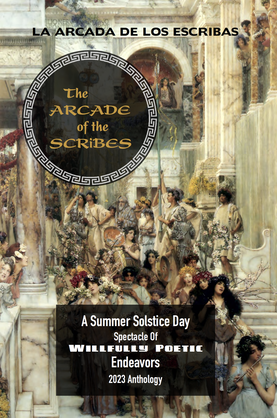
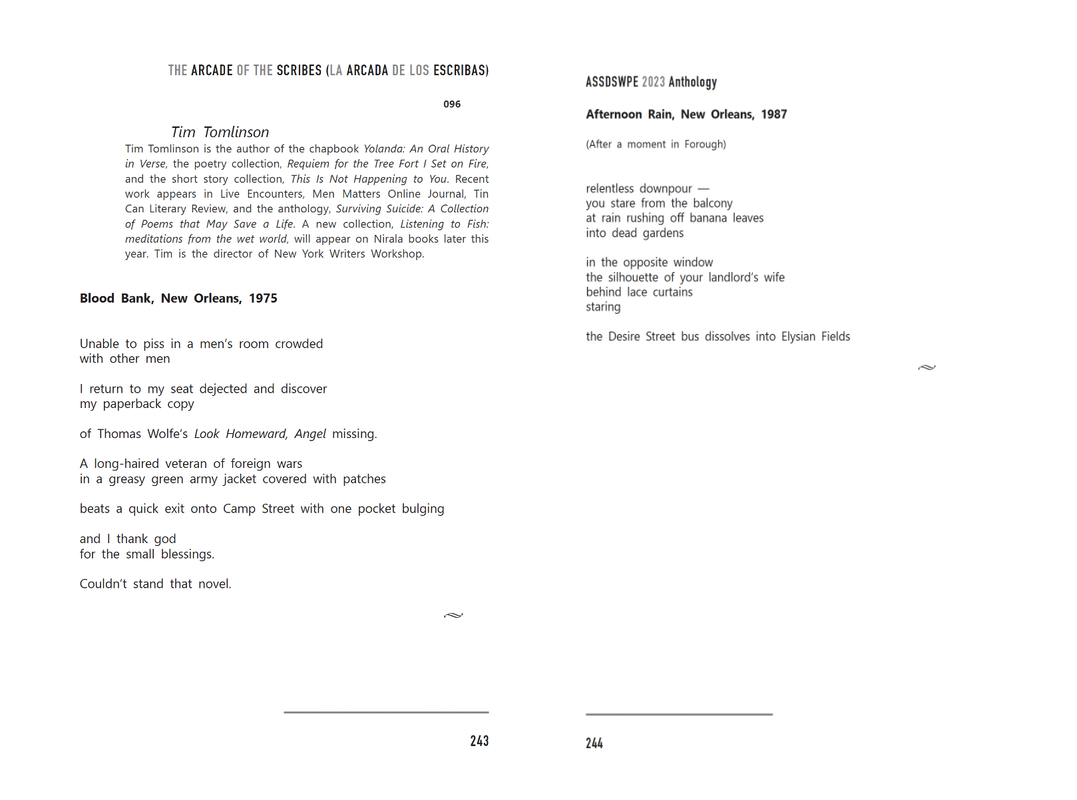
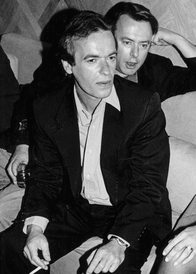

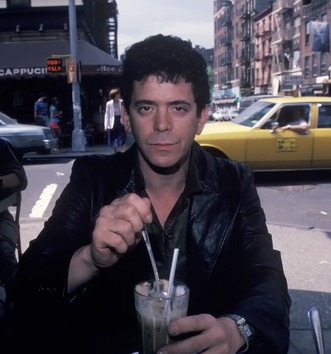



 RSS Feed
RSS Feed